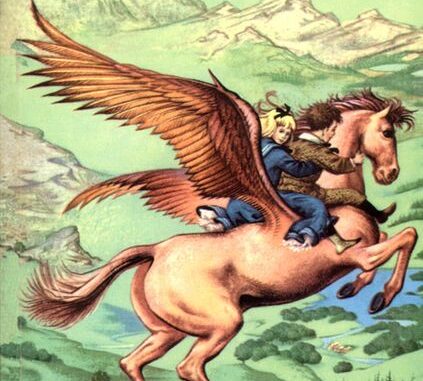
Here’s the next part of the lecture series on The Chronicles of Narnia by Dr. Scott Masson. This is the book that I believe will be the first to be adapted by Netflix for their Chronicles of Narnia series. Let’s look deeper into The Magician’s Nephew. A few weeks ago we shared a lecture on The Voyage of the Dawn Treader, so if you missed that, do check it out!
Description of the Lecture by Dr. Scott Masson
This lecture focuses on The Magician’s Nephew, the first book in the Narnia Chronicles. It looks at the way in which C.S. Lewis distinguishes two types of ‘magic’, one rooted in the ‘enchanted’ created order and responsive to the creator (Aslan) and one rooted in technology, whose power over nature, including human nature, is solely motivated by power without restraint.
It is an exposition of the theme of faith vs magic, the latter of which is morally indistinct from the desire for power over (human) nature that he noted was characteristic of the ‘conditioners’ in his lectures on The Abolition of Man.
Description of this second lecture
C.S. Lewis’s The Magician’s Nephew recounts to us the genesis of the world of Narnia. It is a creation account of sorts, but my lecture will emphasis the way in which Lewis’s portrait of Jadis is a representation of Ishtar, the goddess of love worshipped by Babylon the Great, and thus an illustration of love used for idolatrous purposes. Rather than being informed by the agape love of Aslan demonstrated in The Lion, The Witch, and the Wardrobe, she represents eros curved in upon itself, and is thus a diabolical counterpart as well as a foil for the creative power of ‘eros baptised’. Lewis cleverly connects that tale to a test of obedience in something like the Garden of Eden.
Bonus: Magician’s Nephew art by Emmeline Pidgen
I’m re-reading the Chronicles of Narnia series, and I’ve been illustrating parts of The Magician’s Nephew in my spare time. This is one of my favourite scenes! 🌿✨ pic.twitter.com/pIB5cQxQWg
— Emmeline Pidgen (@emmelinedraws) August 8, 2019
About Dr. Scott Masson
Dr. Scott Masson is an Associate Professor of English Literature at Tyndale University, Toronto. He did his PhD at the University of Durham, where C.S. Lewis delivered the lectures eventually written under the title The Abolition of Man. He has taught courses on C.S. Lewis and J.R.R. Tolkien for over a decade, some of which have been uploaded to his YouTube channel. He also hosted a series of literature podcasts called Paideia Today.


